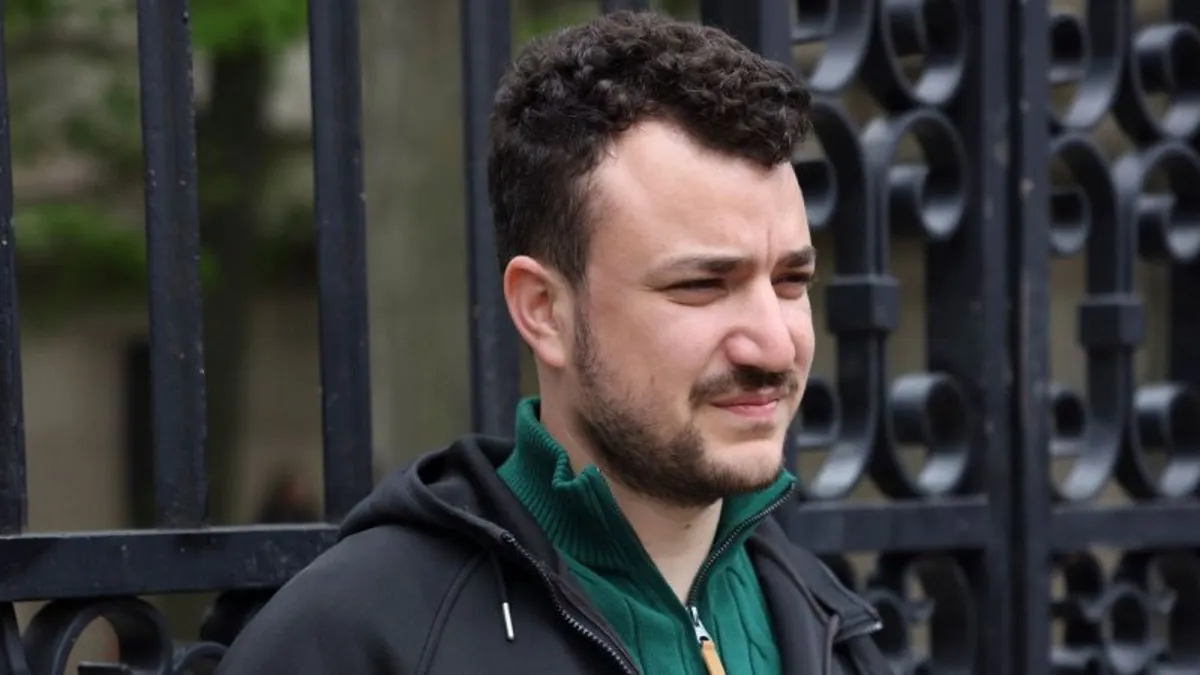
On Wednesday, attorneys representing Mahmoud Khalil will enter the Thurgood Marshall United States Courthouse in New York with a crucial mission: to secure the release of their client, a Palestinian activist, from an immigration detention facility in Louisiana. This legal effort aims to bring Khalil back to New York, allowing him to be closer to his legal counsel and family. Khalil was apprehended by federal agents on Saturday due to his involvement in protests against the Israel-Hamas war at Columbia University last spring.
Khalil’s legal troubles stem from the revocation of his green card during the Trump administration, as stated by his lawyer. However, a federal judge in New York intervened, blocking any immediate deportation efforts until a hearing can be conducted with both Khalil’s attorneys and federal representatives present. This case is noteworthy as it appears to be the first of its kind, highlighting the Trump administration's intensified focus on foreign students and pro-Palestinian demonstrations at educational institutions.
President Donald Trump has publicly celebrated Khalil's arrest, asserting a commitment to identifying and deporting others who share similar beliefs. In a post on Truth Social, Trump stated, “If you support terrorism, including the slaughtering of innocent men, women, and children, your presence is contrary to our national and foreign policy interests, and you are not welcome here.” However, the White House has yet to disclose concrete evidence supporting the allegations against Khalil, and it remains uncertain if he has been formally charged with any crime.
Khalil's attorneys contend that his transfer from New York City to a detention center in Louisiana is a retaliatory measure against his “protected speech and advocacy,” which they argue is unconstitutional. They have filed a habeas corpus petition to challenge the legality of his arrest and ongoing detention. A court hearing scheduled for Wednesday is set to address these issues, although Trump administration lawyers have indicated they will contest the venue, asserting that the Southern District of New York lacks jurisdiction over Khalil's situation.
During a federal court session on Tuesday, both parties submitted a joint letter informing the judge of their inability to reach an agreement regarding Khalil's return to New York. Trump administration lawyers plan to file a motion to transfer or dismiss Khalil’s habeas corpus petition, arguing the Southern District is an improper venue. This motion is expected to be filed by midnight on Wednesday, with Khalil's attorneys given until midnight on Friday to respond. It remains to be seen whether the judge will address any matters beyond scheduling during the Wednesday hearing.
The legal grounds for Khalil's arrest are based on a provision of immigration law that grants broad authority to deport individuals. Former acting ICE director, John Sandweg, indicated that if the Trump administration seeks to remove Khalil on terrorism-related grounds, more information may be forthcoming. However, he emphasized that the district court judge lacks the power to order Khalil's deportation; ICE and the Justice Department must present a case in immigration court, where an immigration judge would determine the validity of his green card status.
Khalil's wife, a U.S. citizen who is currently eight months pregnant, expressed her emotional turmoil following her husband’s arrest. She described the experience as having “ripped my soul from me” and lamented the circumstances surrounding his apprehension, which occurred after they were returning from an iftar dinner during Ramadan. “Instead of putting together our nursery and washing baby clothes in anticipation of our first child, I am left sitting in our apartment, wondering when Mahmoud will get a chance to call me from a detention center,” she shared.
This developing situation highlights the intersection of immigration law, political activism, and the ongoing discourse surrounding free speech in the United States. As attorneys prepare for the court hearing, the outcome could have significant implications for Khalil and others in similar circumstances.